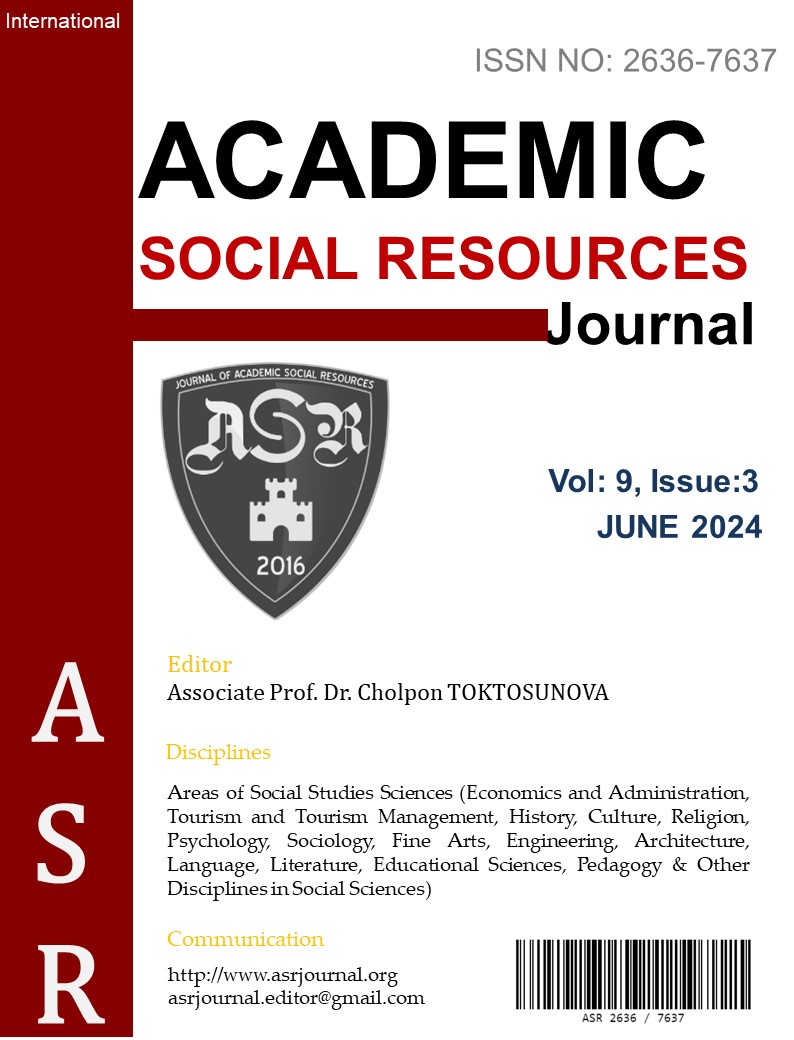Author :
Abstract
Ankara Savaşı’ndan sonra bozulan Anadolu birliğini yeniden tesis eden halefi I. Mehmed’in, 1421’deki ölümünden sonra tahta geçen II. Murad, yalnızca Anadolu’da, babasının yarım bıraktığı işleri tamamlamakla kalmamış, içeride, Düzmece Mustafa isyanı gibi; sosyo-politik, ekonomik ve askeri açıdan merkezi idareyi sıkıntıya sokan bir hadise vuku bulmasına rağmen, Balkanlardaki Türk ilerleyişini sürdürmüştü. Saltanatının ilk üç yılı her ne kadar, diğer iç meseleler ve diğer şehzadeler ile giriştiği taht mücadelesi dolayısıyla sarsıntılı geçse de, sultan II. Murad bu mücadeleden galip gelerek iktidarını sağlamlaştırmıştı. Fakat Sultan, Osmanlı tarihinde ilk ve tek olmak üzere kendi isteğiyle saltanattan çekilmiş, Manisa sancağında vazifeli, henüz on iki yaşındaki oğlu II. Mehmed’i Bursa’ya davet ederek tahtı ona devretmiş, kendisi Manisa’ya istirahate çekilmişti. Elbette bu durum Anadolu, Balkanlar ve Avrupa’da geniş yankı uyandırarak, politik ve askeri sonuçlar doğurmuştu.
Ülke içinde ve sınırları ötesinde, bu önemli gelişmeler olurken, tüm bunların arka planında cereyan eden olaylar, istihbarat tarihine mesai harcamış araştırmacı ve akademisyenlerin dikkatini çok daha fazla çeken gelişmelerdir kuşkusuz. Bu çalışmada erken dönem Osmanlı tarihinin önemli gelişmelerine, istihbarat faaliyetleri çerçevesinden bakılmıştır. Bilinen tarihin, pek bilinmeyen tarafı olan istihbarat faaliyetleri; askeri ve iç istihbarat özelinde ele alınmış, erken dönem Osmanlı tarihinin önemli gelişmelerinin yaşandığı bir dönemde, saltanatı uhdesinde bulunduran bir Sultan’ın istihbarat noktasındaki farkındalığı, çalışmaları ve sonuçları analiz edilmeye çalışılmıştır. Ele alınan dönem itibariyle, mevcutta Osmanlı arşiv vesikası bulunmadığından çalışmaya temel dayanak olan kaynak grubu yerli ve yabancı kroniklerdir. Kronikler karşılaştırmalı olarak incelenmiş, yerli ve yabancı kronikler kıyaslanarak bu noktada en tarafsız bilgiye ulaşılmaya çalışılmıştır. Bunun haricinde telif eserlerden de istifade edilmiştir.
Keywords
Abstract
His successor, who restored the Anatolian unity that was disrupted after the Battle of Ankara, was I. II, who took the throne after Mehmed's death in 1421. Murad not only completed the unfinished tasks left by his father in Anatolia, but also continued the Turkish advance in the Balkans, despite the fact that an incident occurred inside, such as the fake Mustafa rebellion, which troubled the central administration from a socio-political, economic and military point of view. Although the first three years of his reign were shaky due to other internal issues and the struggle for the throne that he embarked on with other princes, Sultan II. Murad had consolidated his power by winning this struggle. But the Sultan, the first and only in Ottoman history, voluntarily withdrew from the reign, served in the sanjak of Manisa, his twelve-year-old son II. Inviting Mehmed to Bursa, he transferred the throne to him, and he retired to Manisa for rest. Of course, this situation had wide repercussions in Anatolia, the Balkans and Europe and had political and military consequences.
While these important developments are taking place within the country and beyond its borders, the events taking place against the background of all these are undoubtedly developments that attract the attention of researchers and academics who have spent a lot of time on the history of intelligence much more. In this study, important developments in the early Ottoman history were examined from the framework of intelligence activities. Intelligence activities that are a little unknown side of known history; it was considered in the field of military and domestic intelligence, and at a time when important developments in early Ottoman history were taking place, the awareness, studies and results of a Sultan who had the reign under his control at the intelligence point were tried to be analyzed. As of the period under consideration, there are no existing Ottoman archival documents, so the main source group that is the mainstay of the study is domestic and foreign chronicles. The chronicles have been examined comparatively, and by comparing the domestic and foreign chronicles, the most impartial information has been tried to be reached at this point. Apart from this, copyrights have also been used from the works.





